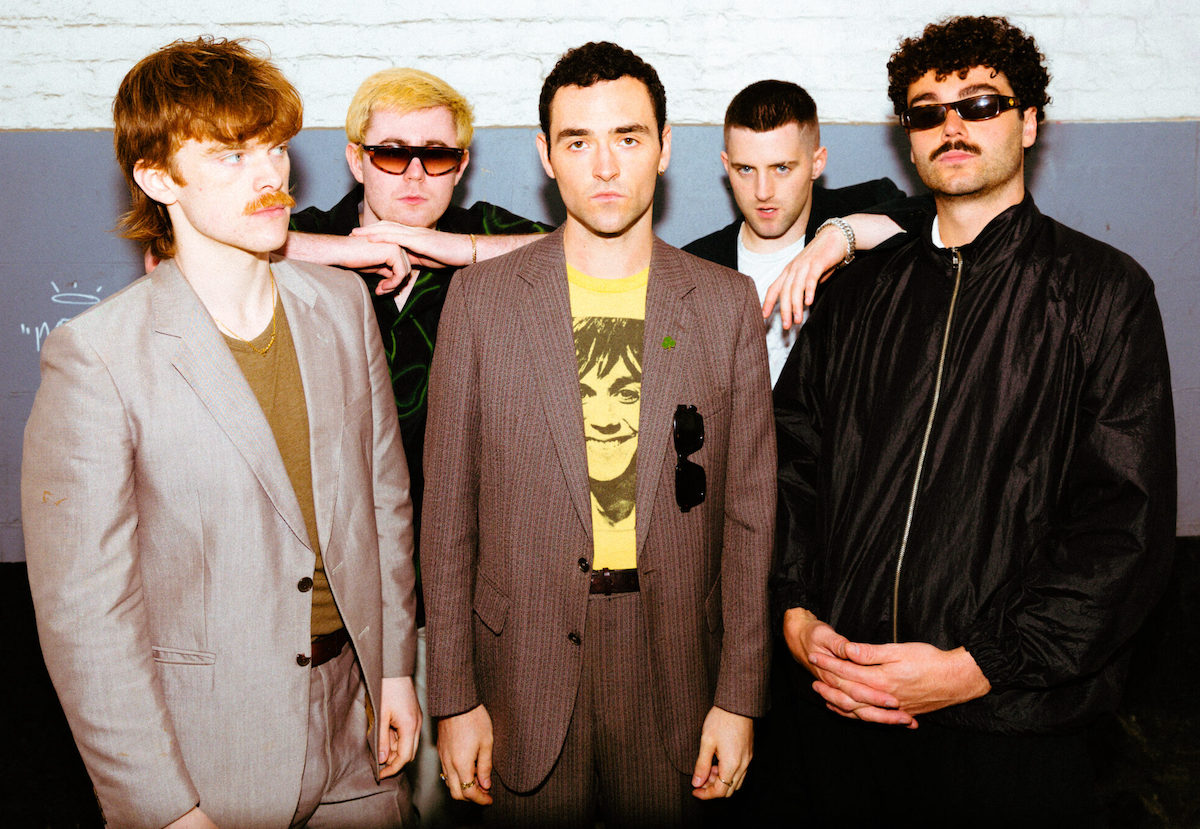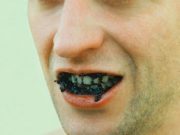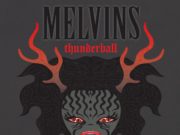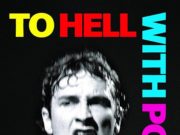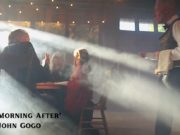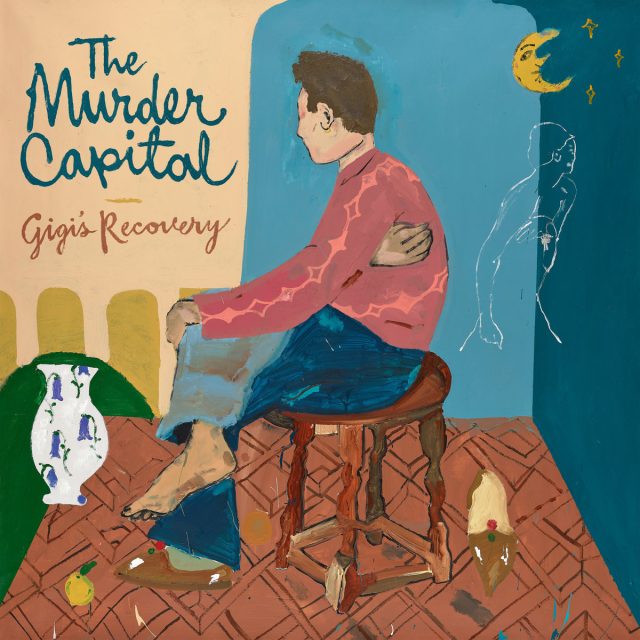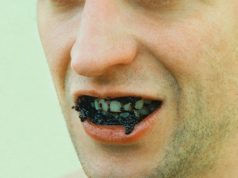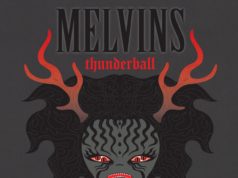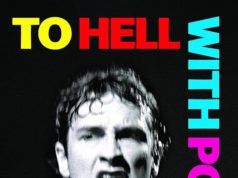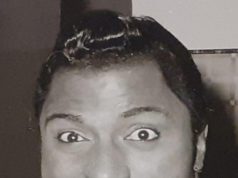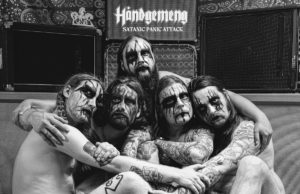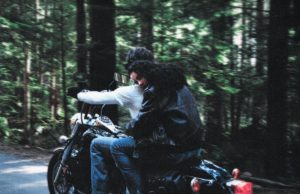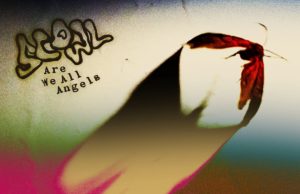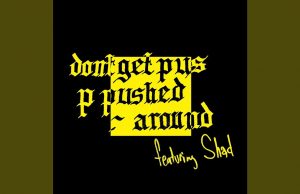THE EDITED PRESS RELEASE: “The Murder Capital’s first album When I Have Fears had all its songs written and recorded within the first nine months of the band knowing each other. Now, with Gigi’s Recovery, the band had to learn to navigate their personal relationships through the relationships they harnessed with these new songs.
Without knowing what these songs would sound like, the band knew what they wanted them to feel like — and worked backwards from there. “We had this slightly tongue-in-cheek mantra at the near-beginning of writing this record,” they say.“It was, ‘The evolution will not be compromised.’ This kept us on a course, even when we didn’t know where we were going”. And that’s exactly how The Murder Capital ended up with an album that is both totally pure and yet completely confident in its direction from its opening words:
“Existence fading Existence fading Existence Exist Existence fading Existence fading Existence…”
What happens when we hit the word exist? It’s as though the line jolts itself into Existence. This collapsed word marks a change in rhythm, giving the line a new heartbeat, a new life and new meaning. In a way, this opening mantra comes to represent what The Murder Capital mean by Gigi’s Recovery. For them, recovery’ is to feel changed: It means returning to a place of strength, “perhaps a strength you never knew you had” and this transformation is wrapped up in their identity as a band and as individuals.
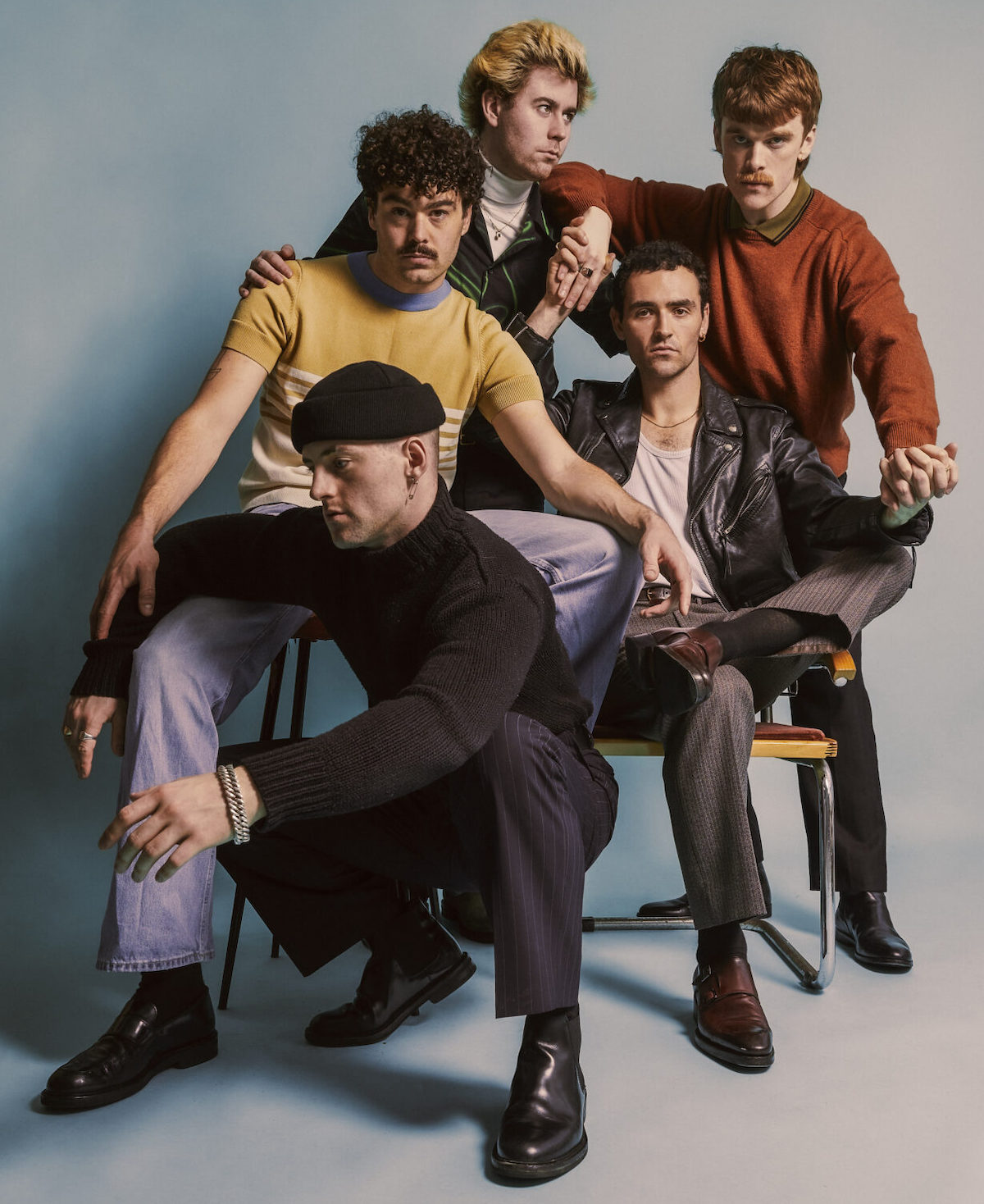
Gigi’s Recovery fills an entirely different space, an entirely new atmosphere to what came before: “We die to keep our souls as features / We hang them from our walls,” McGovern sings in The Stars Will Leave Their Stage. In this song we see the band recognise the fallacy of the art, of the high-stakes-second-album: “Looking back it made sense for us to be pushing against each other’s instincts, because at the point we were at after the first record, to make a record that sounded anything like that would have been wild to us.” They were protecting each other, protecting themselves, and ultimately their identity as a band. However, as soon as they were gifted the time to chip away (this record being written solidly over a two-year period) at the black and white world of When I Have Fears, only then did they allow themselves to erupt into the purple-heathered bloom of Gigi’s Recovery.
Though bookended by Existence and Exist, the album is not a smooth incline. Atypically for a concept album, its narrative revealed itself to the band slowly and painfully through the writing process, and so the result is not linear, but sometimes surreal. You are simply dropped into the story of the record. The first single, Only Good Things, is the album’s climax in a way: It’s desire, in its most pure form, the desire for goodness and clarity. In a way, it’s HD: The lyrics dazzle and the music reaches an almost theatrical richness.
However, leaving behind the luscious, sun-soaked beauty of Only Good Things, second single A Thousand Lives coldly lifts the veil. The track opens with a gentle drum and bass beat that mimics falling rain upon your window. It delicately holds the song together, and like the shifting of tectonic plates, it can sometimes sound like it’s on the brink of both collapse and beauty. The way in which it reveals itself slowly, moment by moment, instrument by instrument, matches the ego dissolving state of the song, and of the entire writing process: “So many of the songs started over two years ago as tiny little snippets and for so long we carried these ideas that eventually gained momentum and weight, and as we fought over them their importance and character began to make sense to us.”
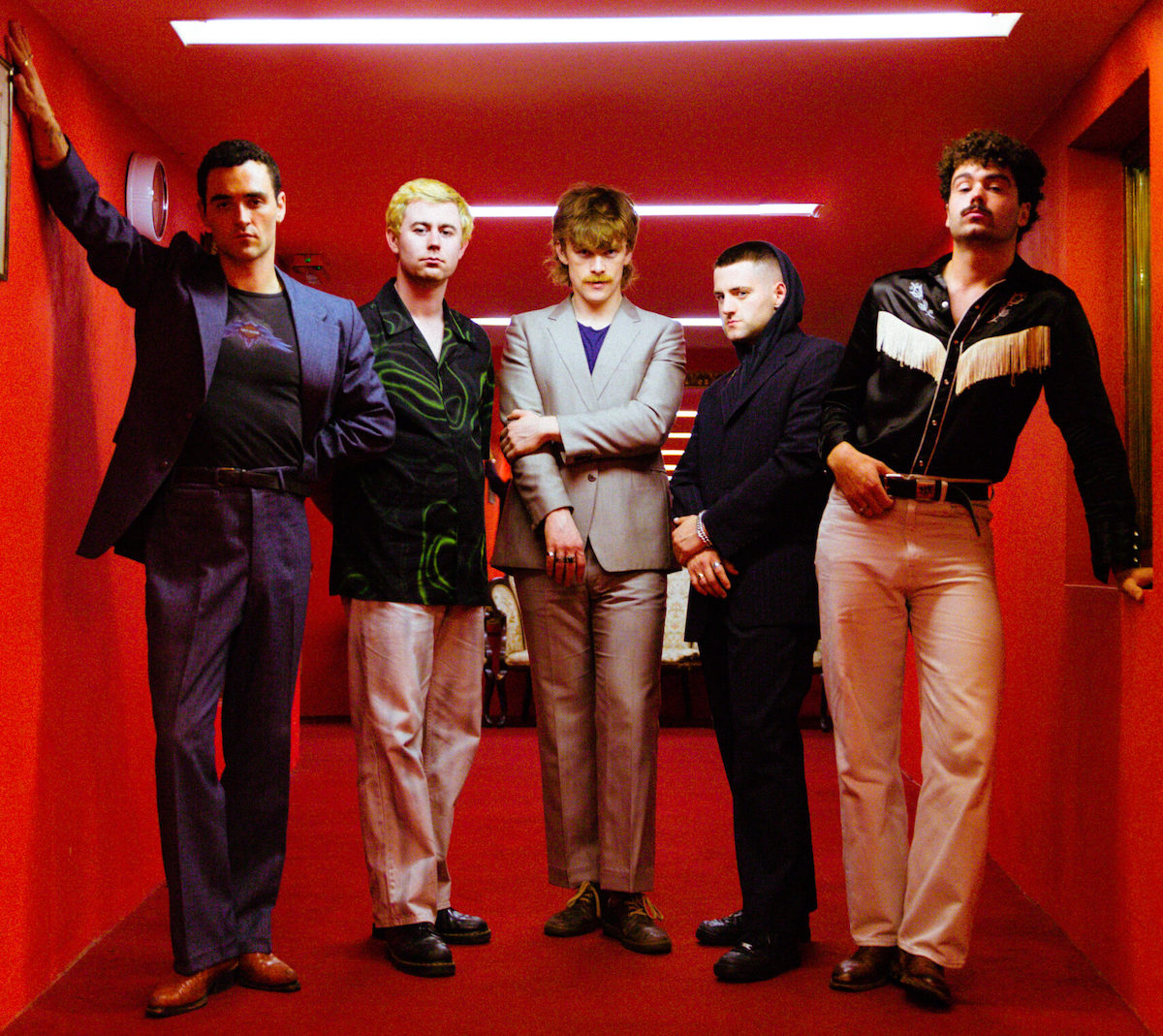
These ideas grew into songs as the band grew into themselves: “A thousand lives with you and I won’t be enough,” James sings, as though each life is a layer within the song, slowly building up and falling away distinguishable or indistinguishable from one another — depending on how you hear it. A guitar loops, then wraps itself around another guitar line which comes and goes like an image in a dream. McGovern’s voice has a carefulness and weight to it. His bold melodies act as a reassuring anchor, so we never get totally swept away into the band’s new found soundscape.
Similarly, the album’s opener Crying and Return My Head show us from the off what this album is capable of. With Crying our senses as a listener become abstracted, and into this dark, trippy world we are pulled from recurring dreams. The eerie sample in this song is a standout moment taken from a video tutorial on how to sing opera, and our lead singer relishes this idea: “The Crying sample excites me so fucking much! It’s that attention to detail within records that really gets me going. The building up of texture, especially through the use of sampling, feels like the face of the character.”
The honesty and vulnerability of The Murder Capital are both preached and practiced. Samples are highlighted and exposed, and the songs are stripped naked thus making the dreamscape real, they reappear throughout the album in different guises and become the embodiment of these recurring dreams. We hear the sample stop, start and restart again and again after James’ voice finishes going back on itself, “I will / I’ll wade, I’m wading for you / I will / I’ll wait I’m waiting for you.” He too is stuck in the loop before flowing seamlessly into the relentless chaotic imagery of Return My Head — and so a new vignette begins.
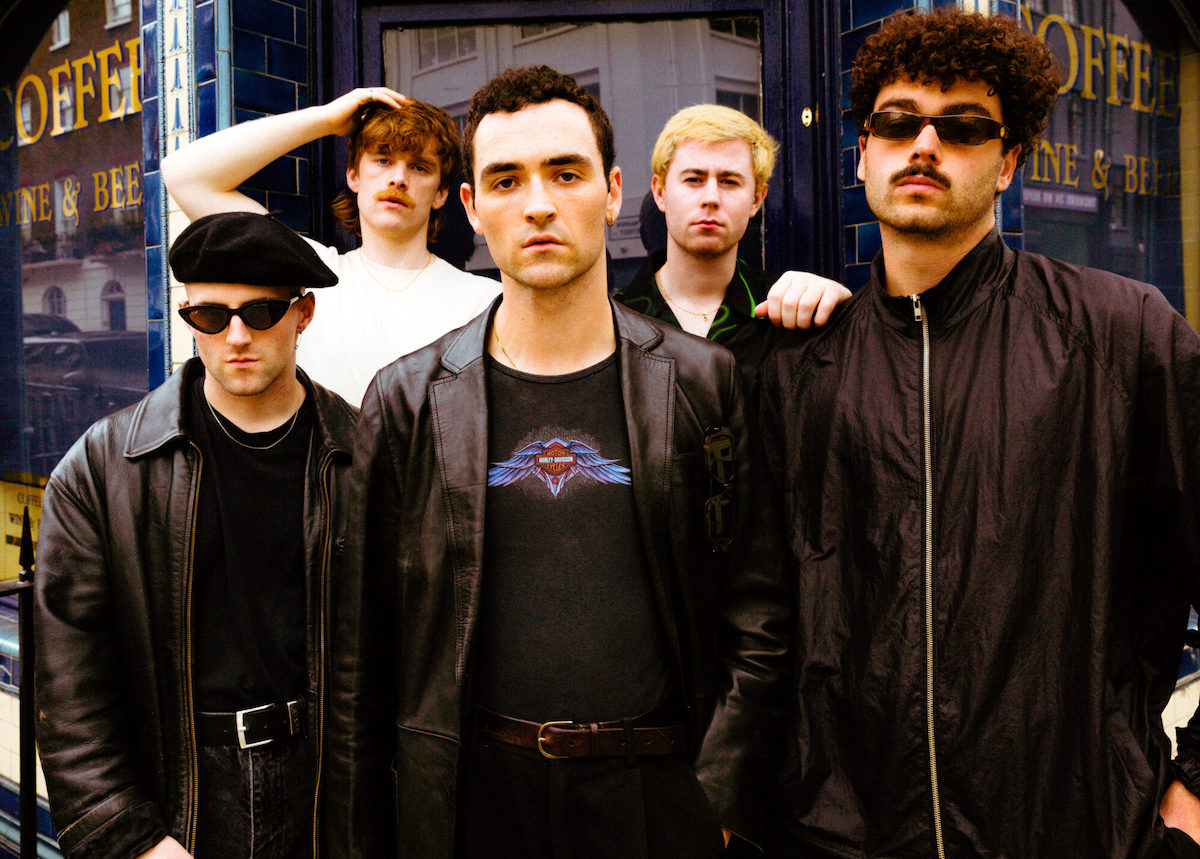
One of the album’s greatest attributes is that it steers away from traditional formulas. Instead, Gigi’s Recovery is dominated by two forces: Mood and melody. The mood is dense and atmospheric, with texture and colour at the forefront of the writing process as different layers are injected seamlessly into each song. The melody, in contrast, is intricate and intentional. James is a trained cellist, and you can hear his unique musicality in the way in which he pushes his melodies as far as they can go: “All I knew is that I wanted to fucking sing, to really sing.” The result is a band that have found their sound. While these exciting new elements connect the band to Gigi’s Recovery, they simultaneously produce its unique musical tension. What makes this album such a beautiful and progressive body of work is that, as with any new relationship, the band continue to ask themselves the questions: is this what we want? Is this working? Or are we just doing this for the sake of it?
And the kinds of questions this album is asking are expressed through the gently heartbreaking Ethel. It’s a song of two halves and, both lyrically and musically it presents to us a crossroads: What do you want from this life? Where do you want to spend your time? Do you want to be burying your head in a bag of drugs or building a life for yourself? Are you doing things that make you feel happy? Satisfied? or unfulfilled? The first half of the song is unanchored, ethereal. The instrumentation remains contained and insular while the melody pushes and pulls against itself and flirts with both major and minor keys as though giving us the options of both darkness and light. There’s this eerie string-like motif that hums in the background, like a drone but pitched higher and less grounding — again it feels unresolved and ambiguous. As with many songs on the album, the feeling of it being sonically irretrievable helps it to live in a brave and surreal sonic space. Once we enter the second half, the song finally finds itself and the result is big, euphoric but still anxious as it leads us into an alternate reality. We go from the city, the bars, the bags: “I always wanted it to be like this for us / Strung out on love / Alive in the city” to “I always wanted it to be like this for us / Having our first kid / Name her Ethel.” It feels uneasy to bring a child into the darkness the band have created, and in doing so, the questions are answered.
For The Murder Capital, Gigi’s Recovery became a symbol of the work they were doing not only for the sake of the art, but for themselves: “We are the work.”
